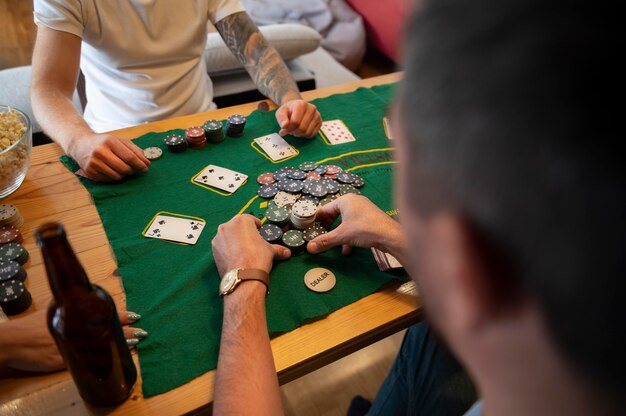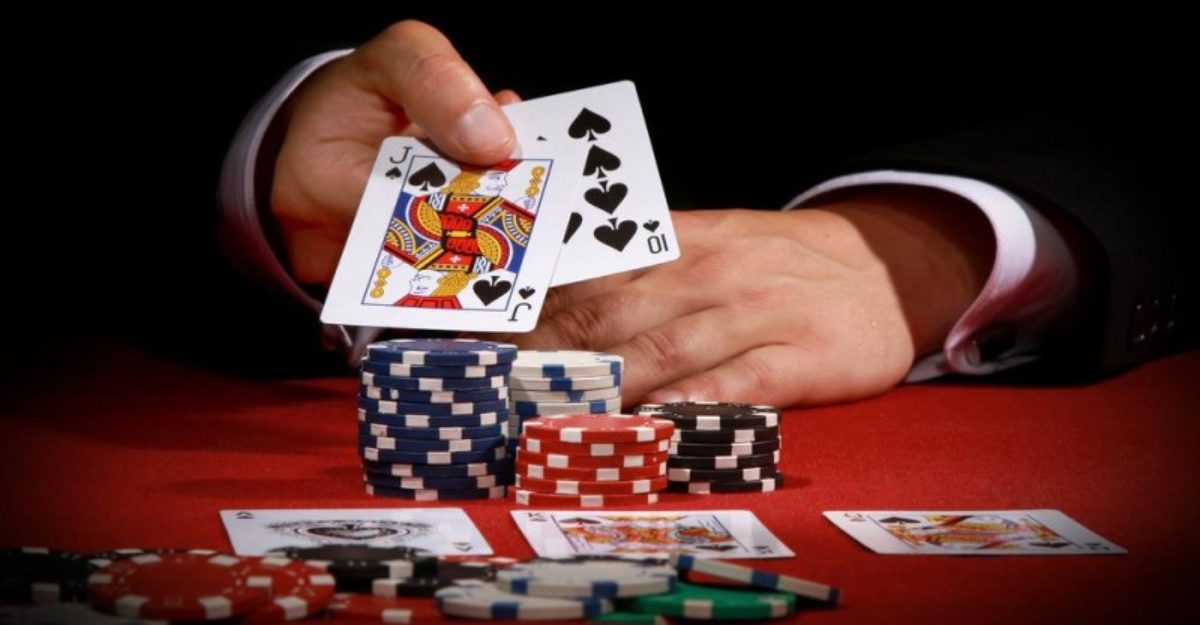
Poker is not just a game of chance; it is a complex psychological battlefield where players engage in a delicate dance of deception, strategy, and intuition. At its core, the game revolves around understanding human behavior and harnessing the power of psychological tactics to gain an advantage over opponents. Each hand played is not only a test of skill but also a reflection of the players’ mental fortitude and emotional resilience.
The mind games at the poker table are as crucial as the cards themselves. Players must constantly assess their opponents, reading subtle cues and betting patterns to decipher their strategies. This intricate interplay of psychology and strategy creates an environment where even the slightest misstep can lead to significant losses. Successful players are often those who can maintain a calm exterior while manipulating the perceptions of others, making bluffing and deception essential components of their toolkit.
Moreover, the psychological aspects of poker extend beyond the table. The pressure of high-stakes situations can evoke a range of emotions, from excitement to anxiety, affecting decision-making processes. Understanding these psychological elements can be the key to mastering the game and achieving long-term success. As we delve deeper into the psychology of poker, we will explore the mental strategies employed by top players and the common psychological pitfalls that can ensnare even the most seasoned veterans.
The Role of Emotion in Poker Strategy
In the world of poker, emotion plays a critical role in shaping strategy and decision-making. Players often find themselves navigating a complex landscape of psychological pressures that can influence their gameplay. Understanding how emotions like fear, excitement, and frustration can impact decision-making is essential for both amateur and professional players.
Emotional intelligence can be a player’s ultimate weapon. By managing their own emotions and reading the feelings of opponents, players can gain a significant edge at the table. This delicate balance between emotional awareness and strategic execution is what sets apart the best players from the rest.
Emotions that Influence Poker Strategy
- Fear: Can lead to conservative play, avoiding risks that might be necessary for winning.
- Excitement: May result in overconfidence, prompting reckless bets that can backfire.
- Frustration: Often leads to tilt, where players make poor decisions out of anger or disappointment.
To manage these emotions effectively, players can employ various strategies:
- Self-awareness: Recognizing one’s emotional state can help in making rational decisions.
- Mindfulness techniques: Practices like deep breathing can mitigate negative emotions.
- Observation: Watching opponents’ reactions can provide insights into their emotional state.
In conclusion, mastering the emotional aspects of poker is as crucial as honing technical skills. By delving into the psychological dynamics at play, players can enhance their strategies and improve their overall performance at the table.
Reading Your Opponents: The Art of Observation
In the high-stakes world of poker, mastering the ability to read your opponents can often be the ultimate advantage. Observing body language, facial expressions, and betting patterns can reveal crucial insights into an opponent’s hand strength and intentions. These subtle cues, when interpreted correctly, can significantly influence your strategic decisions at the table.
The art of observation goes beyond mere visual cues; it encompasses understanding psychological tendencies. Players often exhibit specific behaviors when they are bluffing or holding strong hands. By developing a keen sense of awareness, you can delve into the mind games at play, enabling you to make more informed choices during crucial moments.
Key Observational Techniques
- Body Language: Look for signs of discomfort or confidence.
- Betting Patterns: Analyze how opponents bet with different hands.
- Timing: Notice how quickly or slowly they act; hesitation may indicate uncertainty.
- Eye Contact: Pay attention to whether they maintain or avoid eye contact.
Effective observation not only enhances your understanding of opponents but also builds psychological pressure on them. When players feel scrutinized, they may second-guess their actions, providing you with further leverage in the game.
The Impact of Cognitive Biases on Decision Making
Cognitive biases play a crucial role in how players make decisions at the poker table. These mental shortcuts can lead to flawed reasoning, affecting judgment and ultimately the outcome of the game. Understanding these biases allows players to improve their strategies and enhance their gameplay.
Some common cognitive biases include confirmation bias, which leads players to focus on information that supports their beliefs, and the availability heuristic, where individuals rely on immediate examples that come to mind. Being aware of these can help players mitigate their influence.
Key Cognitive Biases in Poker
- Confirmation Bias: Tendency to favor information that confirms existing beliefs.
- Loss Aversion: Fear of losing influences decisions more than the prospect of gaining.
- Anchoring: Relying too heavily on initial information when making decisions.
- Overconfidence: Underestimating risks due to an inflated sense of one’s own abilities.
In summary, recognizing and understanding cognitive biases can lead to better decision-making in poker. Players who delve into the psychological aspects of their game can gain the ultimate advantage over their opponents, improving both their strategy and success at the table.
